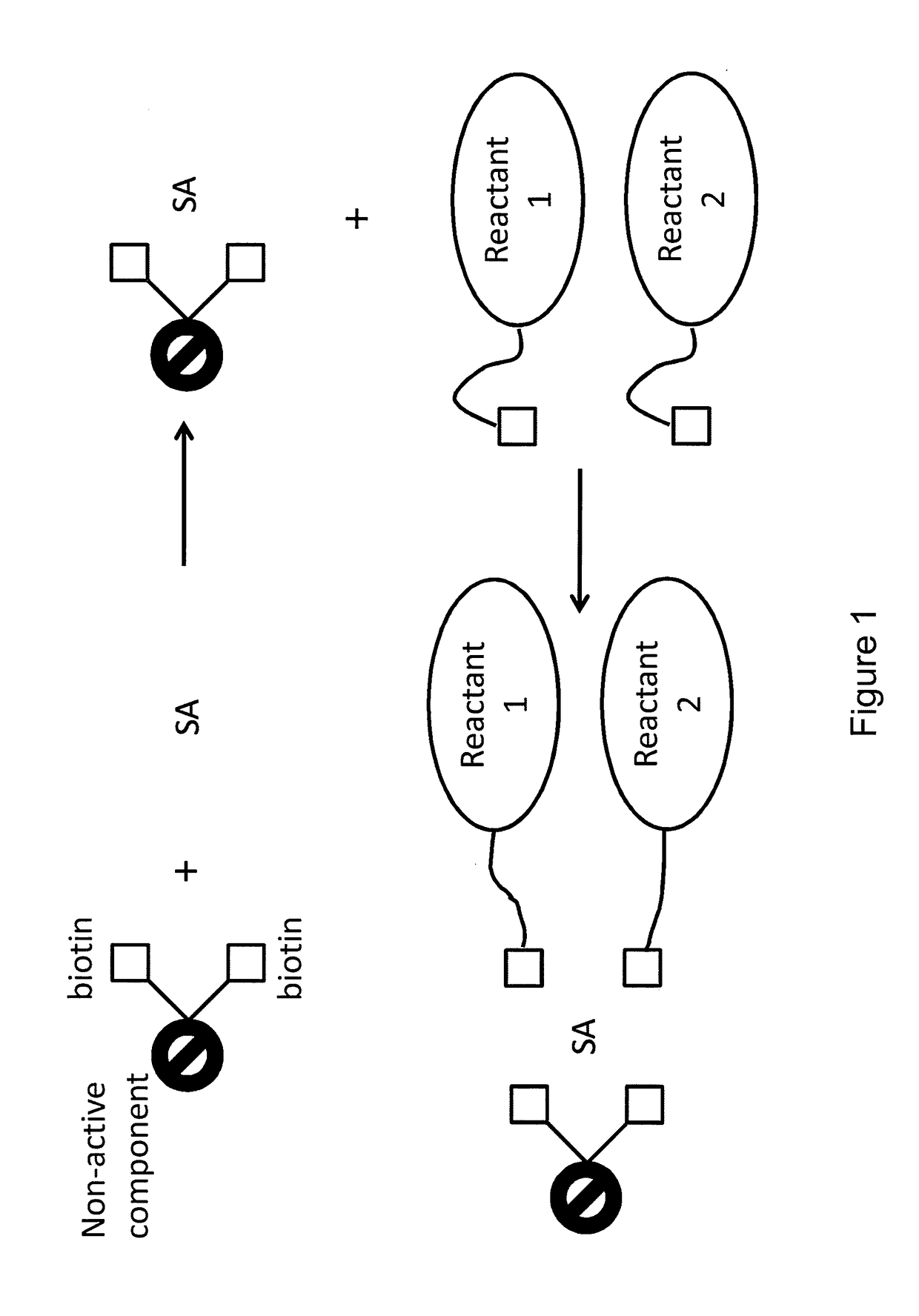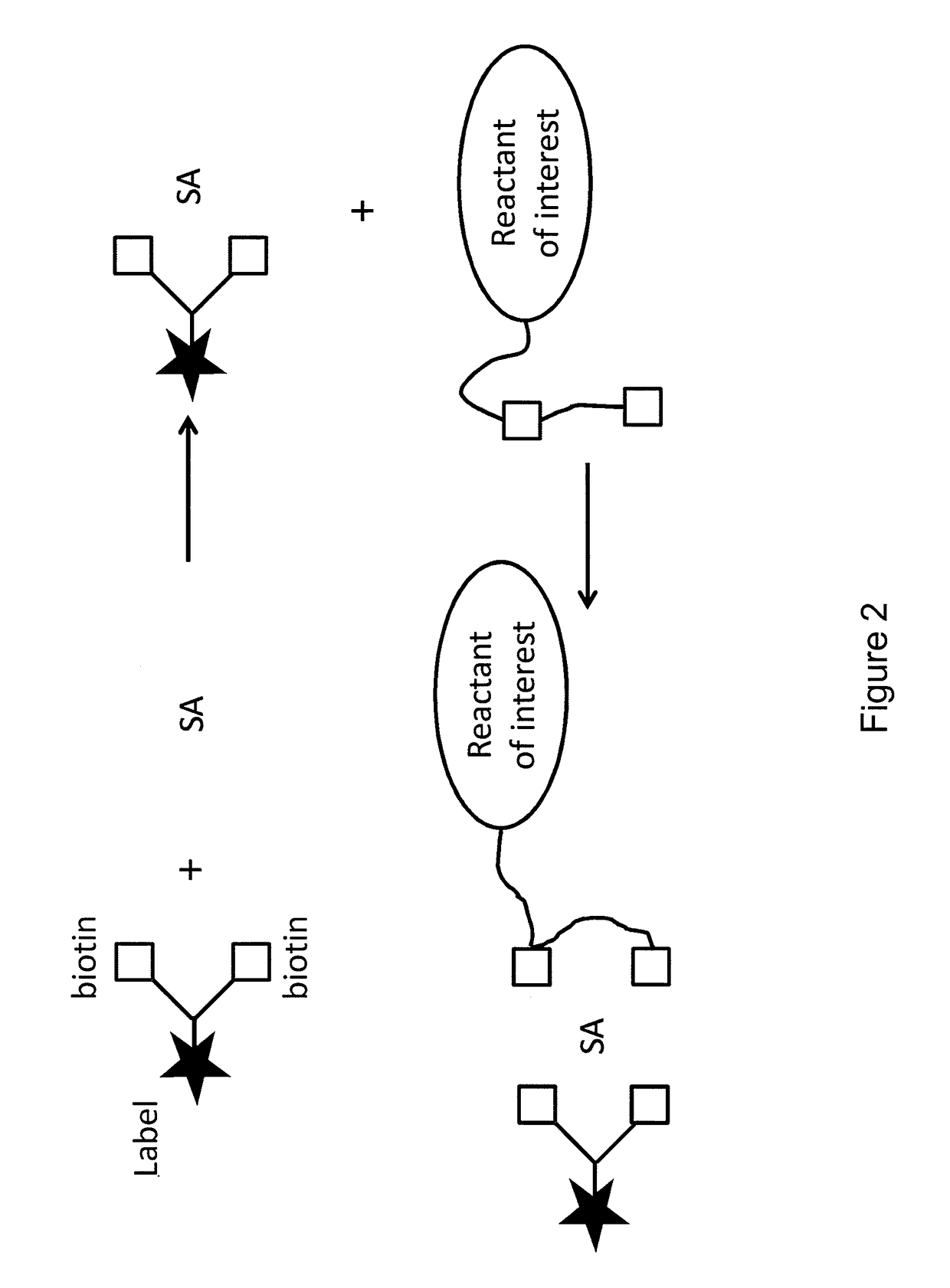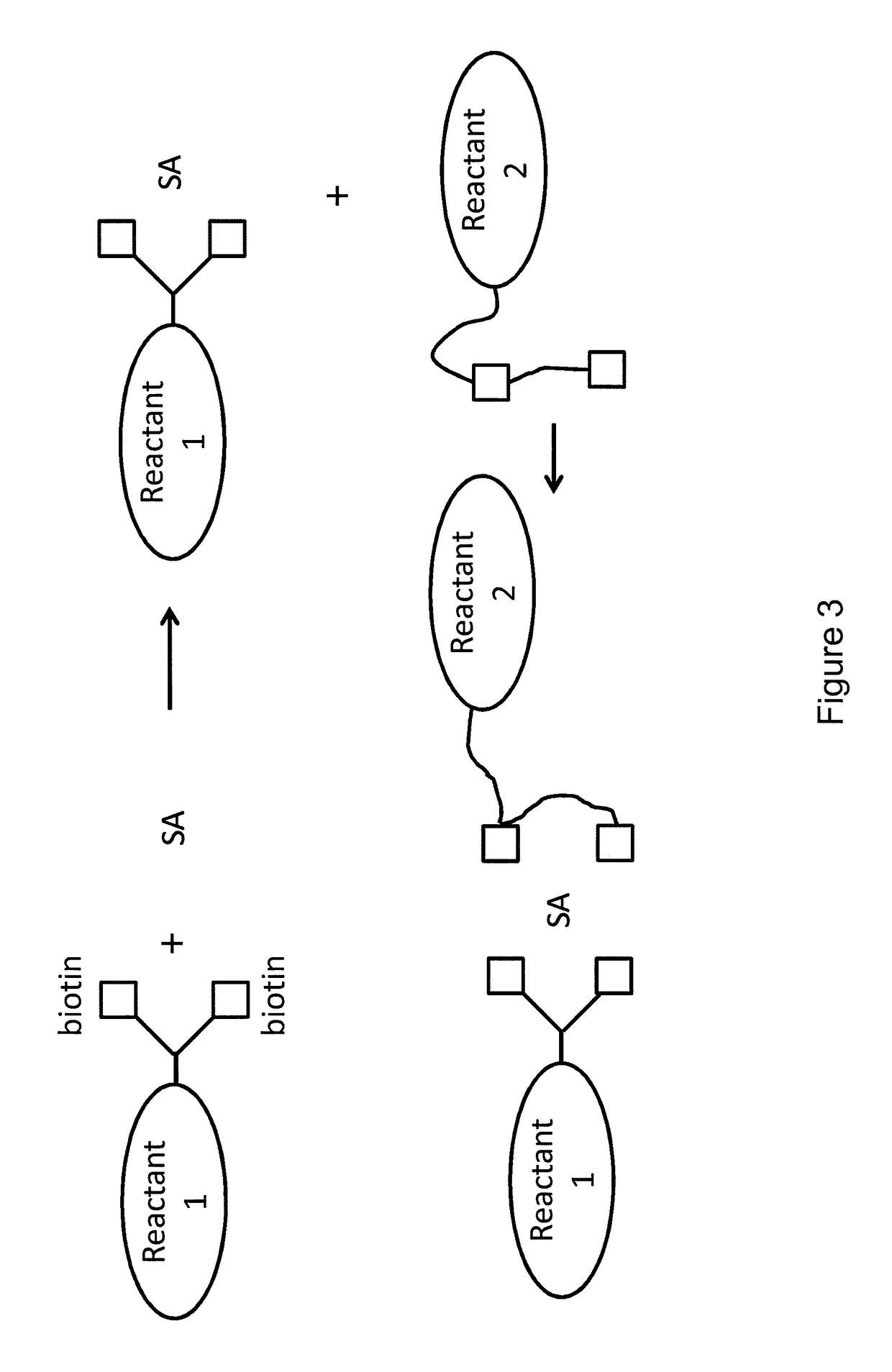Bis-biotinylation tags
a technology of biotinylation and tags, applied in the field of bisbiotinylation tags, can solve the problems of cumbersome process, cumbersome purification of labeled proteins, cumbersome methods, etc., and achieve the effect of enhancing the desired interaction
- Summary
- Abstract
- Description
- Claims
- Application Information
AI Technical Summary
Benefits of technology
Problems solved by technology
Method used
Image
Examples
Embodiment Construction
I. Definitions
[0027]For purposes of understanding the present invention, the following terms are defined.
[0028]The terms “bis-biotin,”“bis-biotin tag,”“bis-Btag,” and “bis-biotin moiety” can be used interchangeably and generally refer to two covalently-linked biotins linked (optionally, covalently linked) to a reactant of interest. In certain preferred embodiments, a reactant of interest comprises a sequence that is recognized by a biotin ligase, which catalyzes a covalent linkage between the sequence and a biotin molecule. Such a sequence is generally referred to as a biotin ligase recognition sequence. Each biotin ligase recognition sequence in a reactant of interest can be covalently linked to a biotin moiety, so a reactant having multiple biotin ligase recognition sequences can be covalently linked to multiple biotins. A region of a reactant having one or more biotin ligase recognition sequences is generally referred to as a biotinylation region of the reactant. For example, a b...
PUM
| Property | Measurement | Unit |
|---|---|---|
| distance | aaaaa | aaaaa |
| linker length | aaaaa | aaaaa |
| distance | aaaaa | aaaaa |
Abstract
Description
Claims
Application Information
 Login to View More
Login to View More - R&D
- Intellectual Property
- Life Sciences
- Materials
- Tech Scout
- Unparalleled Data Quality
- Higher Quality Content
- 60% Fewer Hallucinations
Browse by: Latest US Patents, China's latest patents, Technical Efficacy Thesaurus, Application Domain, Technology Topic, Popular Technical Reports.
© 2025 PatSnap. All rights reserved.Legal|Privacy policy|Modern Slavery Act Transparency Statement|Sitemap|About US| Contact US: help@patsnap.com



